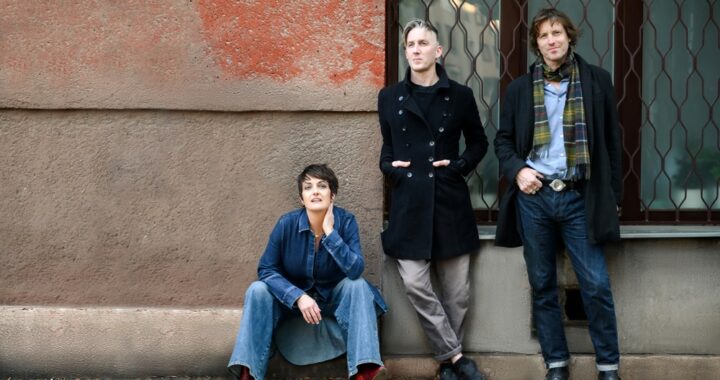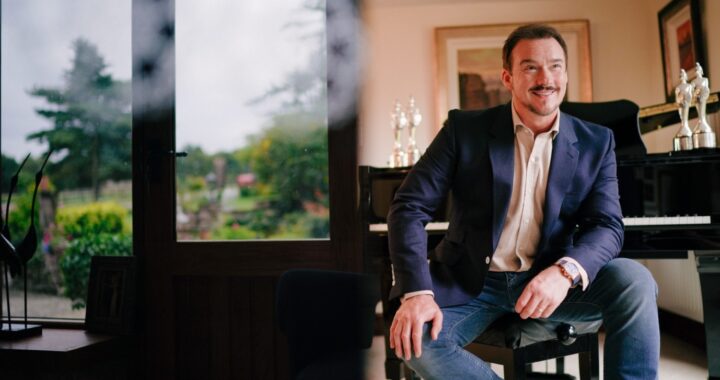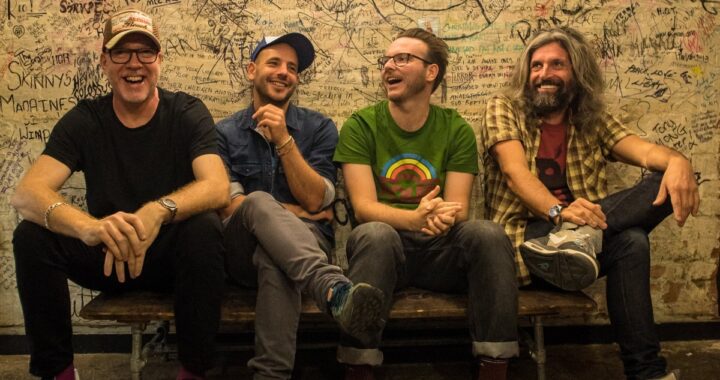Interview: Little Boots
9 min read
In a world where artists strive to express their creativity through their music, their record label can often be their biggest roadblock. Rather than leaving themselves in the hands of a major label, it’s becoming increasingly common for an artist to set out on their own terms and create their own record label. This is exactly what Victoria Hesketh—the woman behind the Little Boots name—did before the release of her 2013 album Nocturnes.
Now that there’s nothing in her way, her creativity’s coming out in full force. It’s hard to imagine an album as conceptual as Working Girl coming from someone without complete creative control; mixing business woman couture and culture with house music and disco influences, she’s created a striking album with some seriously infectious beats behind it. She hasn’t slowed down since the release of the album though; she’s been touring ever since, and recently released two separate remix collections featuring Working Girl tracks reworked by various artists.
We had the opportunity to ask Hesketh about Working Girl, the preceding Business Pleasure EP and what else we can expect from her in the near future.
 Michael Smith: Recently you decided to strike out on your own and start your own record label, On Repeat Records. How does the reality of running your own label match up with your expectations?
Michael Smith: Recently you decided to strike out on your own and start your own record label, On Repeat Records. How does the reality of running your own label match up with your expectations?
Little Boots: The reality is it’s a lot of hard work, and sometimes it can be frustrating working in a decking industry; especially when it feels like you’re spending more time on logistics and admin than being creative. But it’s all part of a process, and one feeds into the other. It’s definitely very rewarding, and I don’t think I could go back to not being in control of the entire business now.
MS: How does this new level of freedom as an independent artist feel in comparison to your earlier years, when you were debuting under the hard eye of a major label? What’s the best part of being able to run your own record label, rather than working under a major one?
LB: It’s obviously a totally different experience. Being with a major label is great in some ways as you have a lot of people working on your project and more access to finances, at least for a short while. But there is a lot of pressure without very much flexibility for creativity, or doing things differently and taking chances, so actually having teams and budgets isn’t that great if you can’t use them to do something exciting. Now I can do whatever I want, which is great, but it can be frustrating not being able to execute creative ideas because of a lack of resources, so it’s a double-edged sword. The best thing is that I can write whatever I want and present myself and my music to the world as I intend without anyone getting in the way or influencing that.
MS: Before Working Girl, there was the Business Pleasure EP. What inspired you to do the business concept? Were your plans for the follow-up to the EP initially different?
LB: Originally I planned two EPs, one called Business and one Pleasure, but was eventually talked into doing a traditional album as it’s still the format most people react to, especially in the media. By this point I already had the EP ready and was desperate to get some new music out, so I went ahead with it with the full title as a kind of teaser for the album, with some of the more alternative tracks and production included. The business concept is partially inspired by my own journey running my own label and becoming independent, partly a kind of fantasy boss lady figure I invented and partly from chain watching late 80s and early 90s yuppie films.
[youtube id=”cWn9JN4gSsk” width=”620″ height=”360″]
MS: How did the production process differ between Nocturnes and Working Girl? Would you say the sound of the album has evolved at all since the Business Pleasure EP was released?
LB: Most of it was recorded over the same period, but with an EP you have more freedom to be experimental, so I knew that was the place to test the water with those tracks and see if people would be into them. I think the pop purists probably weren’t as keen, but then some taste makers who weren’t fans of Nocturnes really liked the Business Pleasure EP, so it was an interesting experiment. I always planned to put the more commercially produced tracks on the album, but I think they all sit well together and balance one another out. An album of just one or the other would get boring for me; I like to show many sides to what I do.
MS: Working Girl has a diverse list of producers, but the album manages to sound cohesive despite the fact. How did you go about making this happen?
LB: This is always one of the biggest challenges and often I find it more difficult than writing the songs. It’s more a process of curation, deciding which songs will hold together then working and cross referencing with producers to get the songs sitting right; a really good mixer can help a lot with this, too. I was lucky for Working Girl in that even though I recorded the songs with lots of different people, the continuity of the lyrics and the focus of the overall sound in my head helped hold everything together.
MS: Pop stars have taken to releasing five or six songs before their albums recently; Florence + the Machine and Marina and the Diamonds have both done it recently. You executed a similar plan before Working Girl came out, and between the singles and Business Pleasure we had heard about six songs beforehand. What made you want to take this route?
LB: I think now once an album is released you can get all of the tracks immediately, so the burn on albums has become very quick. Once a track is out there it’s a lot harder to get people’s attention and cover second and third singles, especially when the album is already out. So a lot of campaigns are front loading their tracks, as that way you can maintain the suspense and a bit of mystery leading up to the release. It almost feels like the release point is more like the end of an album cycle than the start these days!
[youtube id=”2ryPPOQHES8″ width=”620″ height=”360″]
MS: Apart from Ariel Rechtshaid, who did Better in the Morning on Working Girl, you haven’t really worked with any producers over two albums before. Was this a conscious decision?
LB: The track I wrote with Ariel was the oldest. We actually wrote it during the Nocturnes sessions, but it just didn’t sit on that album. I really didn’t want to lose that song though, and when I started writing for Working Girl it just seemed to fit right in as the perfect closer. I work with lots of producers repeatedly, but I always like to mix it up and try new people too.
MS: The album’s got a pretty strong house influence to it, but there are also a few that stand out as different, such as the songs off of Business Pleasure. What were your main musical influences for the album?
LB: I got into Disclosure about 5 years after the album came out so that’s probably partially responsible. I was also listening to a lot of classic 90s dance pop like Everything But the Girl and Moloko. I’m always listening to disco for my DJ sets, so that’s still in there, but I was trying to bring together more modern sounds from current producers I love—like Maya Jane Cole—to make it less of a pastiche than my previous albums. So I was taking inspiration from lots of different places, but always making the melodies and structures pop.

MS: We’ve already reviewed Working Girl for our website, and we thought it was amazing. Would you say it’s your strongest album so far? What’s your favourite track off of it?
LB: I think it’s the album I’m most proud of because it really feels like a true representation of me, and I can feel that in the way people have reacted to it. It’s like they’re finally getting to know me. Maybe I’ve always been a bit too distant in my albums before and hid in the songs a bit too much, but this time I’ve really put myself at the front and in the heart of it and I think that shows. I don’t really have a favourite but Get Things Done is a lot of fun to play live, and Help Too still breaks my heart. I can’t quite believe I wrote it.
MS: Aside from normal live performances, you also work as a DJ. What made you want pick this up on the side? How differently do you approach your DJ sets compared to your live shows?
LB: I started DJing to make ends meet when I first moved to London and have just done it ever since. I’m musical and quite tech savvy so its not rocket science, it just made sense for me to do. I started taking it more seriously around Nocturnes when I was getting more DJ gigs and really nerding out about dance music. I really enjoy DJing, but it’s still nothing like the feeling of a live show for me. I don’t think you can really compare them.
[youtube id=”G-jbbXKXxUU” width=”620″ height=”360″]
MS: You’ve released mixtapes pretty regularly throughout your career, too. If you were going to release another one right now, what do you think you would put on it? Are there any other songs you’ve been tempted to give the Little Bootleg treatment to?
LB: It’s actually been on my list of things to do for a long time. We have some great remixes coming out on the Working Girl Remixes package, so I want to try and include some of those. I’m working on a few collaborations as well, although I’m not sure which will be finished. The bootleg was just a bit of fun, there aren’t any plans for more right now. I think people might get a bit annoyed with me la la la-ing all over their records.
MS: You used to record acoustic versions of your songs for your YouTube channel as well, with the last one being for the EP and album track Heroine a few months ago. Has running your own record label made things like this harder to do?
LB: No, it just doesn’t really make as much sense as it used to now. So many people are doing YouTube covers, and I can never recreate what made it so special around the first album. It’s never a good idea to try and repeat yourself, I’d rather just leave that whole little era as its own thing. Sometimes I play piano versions when I’m bored and my piano is set up, but right now my decks are, so it’s fairly impossible. I recorded some for the physical version of Working Girl and for Spotify, and there are acoustic versions of Working Girl, Help Too and No Pressure hanging around as well.
MS: You’ve just finished your short eight date tour to promote Working Girl. Are you planning any other international dates for the near future?
LB: We are playing some dates in Europe over the Autumn, so hopefully then!
Little Boots’ latest album Working Girl is out now! Little Boots will performing at LONDON’s XOYO on Thursday November 26 2015.



